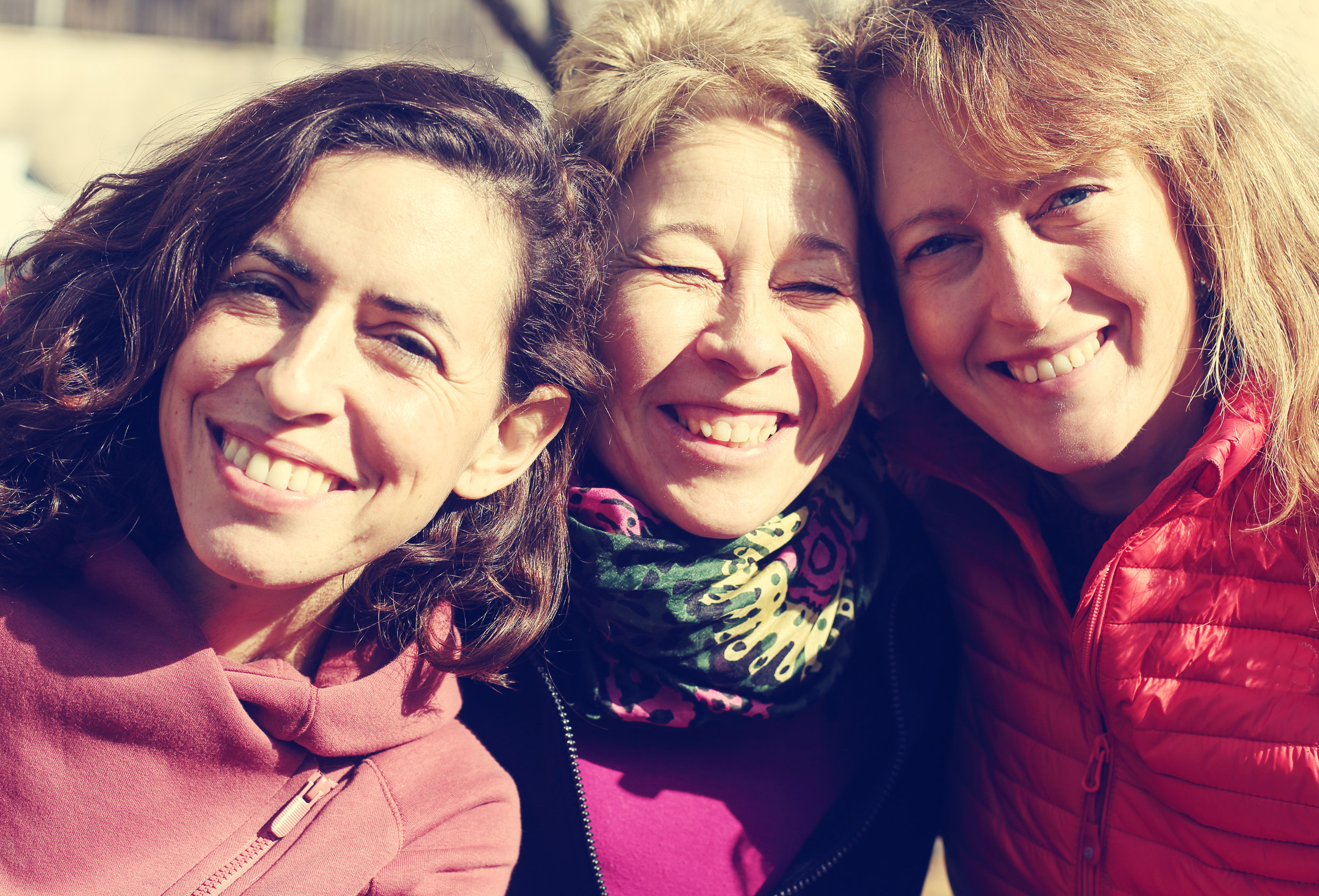| CARMEN: 00:05 | Hi, everyone, and welcome to our mental health and substance use series called Recovery Out Loud. With us today is Andrea Horwitz. She is the clinical director for Harbor Village in Florida. And her expertise is in substance use disorders and working with those individuals who are struggling with addiction. Hi, Andrea. Thank you so much for being here today. |
| HORWITZ: 00:27 | Thank you. Glad to be here. |
| CARMEN: 00:30 | So today we’ll just dive right into the topic of boundaries – what they are, why everyone needs them, and how they are directly related to addiction. So my first question will be just basically, can you talk us through– we use that term, boundaries, all the time. But what, in your view, are boundaries? |
| HORWITZ: 00:58 | So boundaries are really setting limits for ourselves. So what happens in substance abuse is that we let go of those boundaries. And sometimes it’s due to trauma. It’s due to substance abuse. It’s due to guilt and to shame. And those boundaries get very loose. And they get loose. And sometimes they can even get very rigid. And sometimes we don’t let people in that we should be letting in. So it can be caused by a combination of substance abuse and trauma. So it’s either one or the other or even both. |
| CARMEN: 01:41 | Why is it so hard to see where those lines are? And does that have to do with your own understanding of yourself? So if you don’t understand how you feel or you don’t have clarification about what you are, who you are, does that create fuzziness or grayness, in terms of setting boundaries with other people? |
| HORWITZ: 02:09 | Yes. Sure. So boundaries, we can look at it in two ways. So when you are feeling– a lot that’s related to substance abuse is very people-pleasing skills, right, because there’s a lot of guilt. There’s a lot of shame about using and then the behaviors that come along with using. So what happens is that you want people to like you. You want to be loved. And so you’ll open up all these doors and these– we would say, it’s like you’re opening up the fence in your yard, and you’re letting everybody in. And sometimes it’s really hard to define when you’re not clear-headed which ones are the good ones to let into your property and which are the ones we should keep outside of the fence. And because you don’t feel good about what you’ve been doing and you know right from wrong– but, of course, using kind of deters us from making good choices. And boundaries can also be kind of like not knowing which boundaries to keep, especially if you have trauma. And so you can learn at a very, very young age that people impede on those boundaries. And so that’s normal. And so you find a lot of people, especially with sexual trauma, really don’t have any boundaries about themselves. And that, to them, is very normal. So we do speak a lot about boundaries and protecting ourselves and self-respect. And it goes along a lot with our values |
| CARMEN: 04:01 | And are these that you start to address as during the process of detox or after detox? Because I heard you mention having clarity or being clear in your thoughts, it seems to me that that would be very hard to do under the influence, obviously. So as you’re bringing people in, and you’re beginning the process of detox, is that when, perhaps, things that people were once avoiding, emotions that they were once avoiding, or situations they didn’t want to face start coming up, and that’s where some of that clarity comes into play, but also a lot of pain? |
| HORWITZ: 04:45 | Yes, definitely. You’re coming in to detox. You’re losing the only solution and the only coping skill that you did have. So you’re coming in, you’re making a decision, “I’m not that drink or use anymore,” but now you don’t have anything to replace it. So what happens is all these emotions get flooded. They all come up at once, and you’re feeling everything that once. You’re feeling happy, you’re feeling sad, you’re feeling frustrated, you’re feeling irritable they’re just all happening at once, and it could be very, very overwhelming. So do we start to talk about these things even at the detox level? Yes. Because we start to plant the seed, and everybody’s detoxing, everybody’s sense of self is different, and we always meet a client where they’re at. So there’s sometimes that a could come in and be ready to absorb it from the get-go and others just need time to sit back, kind of like catch the breath a little bit. And that’s where we’re good. That’s where we keep our boundaries; we understand that too, so we need a client where they’re at. And if they need time to sit and have their emotions, and cry and– we’re there and holding them or protecting them, and letting them know this is okay. It’s okay to feel, we’re not here to judge, we don’t judge the feelings and we kind of are teaching them that they shouldn’t be judging their feelings either, and to just let it be. |
| CARMEN: 06:27 | It’s interesting because the more that I learn about this, as the person who’s struggling with addiction, begins to change, begins to have that clarity it– from the outside, it almost changes the whole dynamic with those around them, doesn’t it? So I’m wondering how you differentiate between setting boundaries or punishing behavior. Sometimes from the outside, right, boundaries get set, and it almost feels from the outside because it’s such a change, like you’re getting punished. So can you kind of talk us through the difference there, and how to kind of distinguish that difference? |
| HORWITZ: 07:13 | Sure. So punishment is really control. And boundaries is something that we do for ourselves. It sets clear limits for ourselves. And it’s also an internal motivation opposed to external. So punishing, again, looks very controlling. And if you continue to do this, this is what’s going to happen, or “I’m not going to love you, or you’re not going be able to come home. But it could also look like very clear set boundaries. And what happens is in addiction, the boundaries for themselves can get very confusing because they feel like if they set a boundary with somebody like, “You may not talk to me that way,” then they can hear that as, “You don’t love me. I’m not good enough. I’m not lovable. I’m bad.” And so what we try to teach them is to set boundaries for themselves that gives them some self-respect and their own control. So it kind of can sound very confusing but if you think about it in terms of– if you think about it in terms of kids, right, so boundaries would look like, “I’m setting a boundary that you do all your work. You do your schoolwork, and then you can go do things,” opposed to, “You’ll never be able to go out again unless you’re going to do your work.” And it sounds very different. And it’s just new skills and the way it’s set, it’s just new for them. And it could be very scary. |
| CARMEN: 09:08 | It sounds like what you’re saying is that when you set boundaries, you’re setting the limit, but with an option for healing versus where punishment, there’s no way to heal out of it. It is just a punishment. Does that sound right to you? |
| HORWITZ: 09:27 | That’s exactly it. That was a great way of saying it. And punishments are threats where boundaries or positive. And it’s– |
| CARMEN: 09:40 | Sorry, I didn’t mean to interrupt you. Finish your thought. |
| HORWITZ: 09:43 | No, it’s just basically that punishment you can look at as threats and boundaries, we look at as being positive. |
| CARMEN: 09:55 | Another interesting notion is this idea of separateness, and I wanted to address that, too, because isn’t it– the idea is with addiction, your separateness as your own entity, as your own self, as the things you like, the things you don’t like become blurred. And then as you learn to set boundaries, you’re kind of learning who you are as a separate person from everything else. So can you talk about that? Because I think that’s just so significant to recovery and the gray lines that exist within addiction. |
| HORWITZ: 10:40 | Sure. So what happens with the disease of addiction is everything’s blurred. You’re not making good choices. Your judgment is off. Your insight is off. And there’s part of you that knows right from wrong. And there’s this other part that kind of takes over. So there are no boundaries. You don’t even have boundaries with yourself, right, because the boundaries with yourself would be, “I don’t want to pick up today,” But those get blurred because you’re powerless over it, so until you get the help and know there’s a different way to cope with your emotions, to cope with day-to-day life challenges. And that’s just what boundaries look like. So what happens is it’s really just setting boundaries for yourself and how does that start to look? And it’s selfish. It can look as being selfish, and that’s very scary for somebody in recovery because what you’re taught is that the disease makes you selfish. But in recovery, we tell you you need to be selfish. So that’s really can be very confusing and a confusing boundary. But– |
| CARMEN: 11:59 | I Sorry. You’re saying something so interesting, which is it’s scary, but actually on the flip side, empowering. And so how do you bridge that gap? Because the terror of stepping out and becoming selfish, yet empowered in a way that actually improves all the relationships in your life, so that just almost from the outside doesn’t make any sense. Have you seen clients feel so empowered after taking those really scary steps towards boundaries and separateness? |
| HORWITZ: 12:44 | Yeah, it’s really incredible. I’ve been doing this for over 16 years, residential treatment, and it’s really amazing to watch somebody surrender. And that’s really what you’re talking about in boundary setting, right, because now they’re surrendering. They’re just saying that I can’t do this on my own. I need help. And that’s where boundaries are great because you’re allowing people in to help you. So when we talk about boundaries, we talk about allowing the people in who love you, who want to protect you, who have your back, who are not going to judge you and allow them in your hula hoop. And allow the ones that are not helpful, who are out there to hurt you, who don’t have your best interests and keep them on the outside. That gets very confusing when you are in the throes of your addiction. So, yes, while you’re in recovery and we are beginning to see that process, they’re beginning to see that self is okay. I am okay with me and it’s okay that I am an addict because now I’m getting help. |
| CARMEN: 14:05 | I love what you’re saying because as you mentioned earlier, you might have learned maybe love or what love is in a wrong way and not know who to let in and who to keep on the outside. And isn’t that why the guidance of treatment, the guidance of therapy through this whole process is so important? Because how is someone going to know that unless you have someone with this kind of expertise guiding them through? There’s this notion out in society, it’s like you just need to– you need to quit, you need to make some good choices for yourself and you just need to– that’s really a fallacy, isn’t it? Isn’t it very hard to– how are you going to learn all this by yourself? So can you kind of buck up against those notions? Can you talk to us a little bit about that? |
| HORWITZ: 15:05 | Sure. So really, the disease of addiction is this: dis separated from ease. So disease. So you were separated from ease. So if somebody could just stop, they would have stopped. Why would if they’ve lost their families, lost their children, lost jobs, even those who work had legal trouble? It’s not that they want to wake up and say, this is a good plan. So they could have stopped. They would have stopped. And so, yes, from the outside, you say like, okay, just put it down. Can’t you see what’s happening? That the disease is so strong. And what we really do at Harbor Village is really help you understand what you’re up against. And this all comes into learning boundaries, right? Because they didn’t know there was boundaries. I didn’t know I can say no and still be loved. I didn’t even know that I can say no and that would still be okay. And you’re right. Do we learn that from childhood? Most definitely, yes. So there’s little traumas, there’s big traumas, sometimes needs are not met and those get crossed and then we lose what a boundary is. And just to speak of it, that people will always come into treatment and they’re like, “I can’t trust anybody”. And I’m like, That is really using good judgment because based on what they’ve been through, you’re right, you shouldn’t trust. You’re using really good judgment not to trust right away. But once they see the information we’re giving them and the love and the nonjudgment, they really begin to trust. |
| CARMEN: 17:03 | So what would you say, someone’s watching this and this– even this conversation could be intimidating, scary. The whole process of surrender, as you call it is incredibly intimidating. So what is your message of hope for someone watching this, who this sounds great, this sounds– is this really possible? I’m sure that you run into a lot of people who have lost hope, can’t trust anybody. How do you talk them through even just the beginning bridge of making the phone call or reaching out for help? Isn’t that an incredible challenge at the beginning? |
| HORWITZ: 17:54 | Yes. I mean, asking for help is the hardest thing any addict ever has to do. And I will say that if you don’t take a risk, you’re going to risk even more. And so sometimes, what I say is what is the worst that is going to happen? What is the worst? You’re going to end up better or you’re going to walk out the same. And 99.9, 100 percent, you’re going to always walk at to be a different person. And it’s about trusting the process. It’s making that first call. It’s taking that first step, which is always going to be the hardest and it takes so much courage and it takes so much faith and it takes so much hope to be able to do that. And I think that once somebody can kind of put down the bat and pick up the feather and give themselves a break, that that first step is so difficult, but then we’re on the road to recovery with them. They don’t have to do it by themselves. So once they step into our doors, we’re there with love, we’re there without judgment, and they don’t have to do it by themselves. And that’s the most beautiful part, that they’re making a choice for their lives, for their recovery. And all we say is all they have to do is take one day at a time and sometimes just one minute at a time. |
| CARMEN: 19:34 | Andrea Horwitz, I want to thank you for coming on and having this conversation. I always enjoy speaking with you and I love to have you on again. And I want to thank our viewers for tuning in. And I hope you all have a wonderful day. Thank you. |
Boundaries vs. Punishment
Featured Guest: Andrea Horwitz, LCSW

Boundaries are vital in addiction recovery — both for the person in recovery and their family members and friends. But there is a significant difference between setting and enforcing boundaries and punishment, which can have negative effects on someone’s recovery journey.





